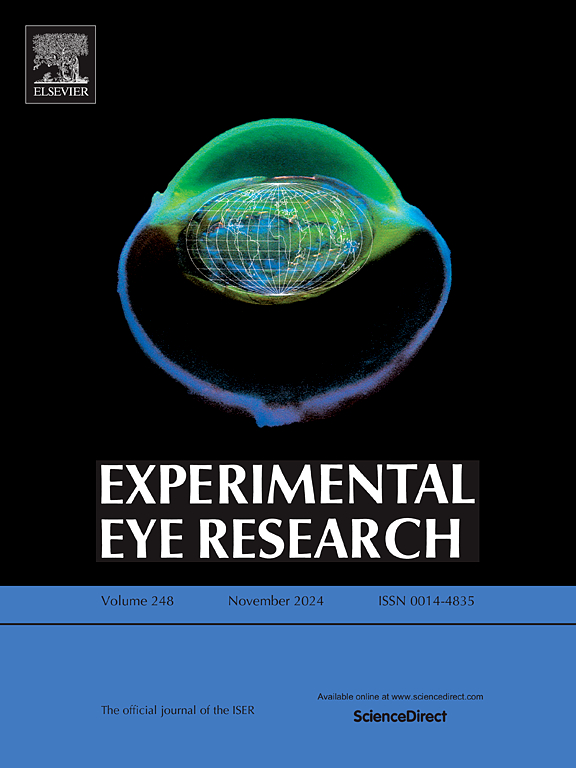Recent advances on modeling retinal disease: Towards efficient gene/drug therapy
IF 3
2区 医学
Q1 OPHTHALMOLOGY
引用次数: 0
Abstract
Advanced modeling biotechnologies are required to understand retinal diseases and develop effective treatments based on the patient's genetic background, lifestyle, and environment. In this work, recent advances in different types of study models that are used in the retinal disease area of research will be explored. The retinal models to be covered are: in vivo systems (human and animal), in vitro organisms (cell lines, primary cells, patient-derived stem cells, microfluidics, organoids, and spheroids), ex vivo models (explant cultures and retinal tissue preparations), and in silico models (computational and mathematical). Moreover, the unique comprehension of models of retinal disease, advantages, and disadvantages will be scrutinized. Finally, innovations/improvements derived from models towards gene and pharmacological therapy that display promise for treating retinal illnesses are elucidated.

视网膜疾病建模的最新进展:迈向有效的基因/药物治疗
需要先进的建模生物技术来了解视网膜疾病,并根据患者的遗传背景、生活方式和环境开发有效的治疗方法。在这项工作中,将探讨用于视网膜疾病研究领域的不同类型的研究模型的最新进展。所涉及的视网膜模型包括:体内系统(人类和动物),体外生物(细胞系,原代细胞,患者来源的干细胞,微流体,类器官和球体),离体模型(外植体培养和视网膜组织制备)和计算机模型(计算和数学)。此外,对视网膜疾病模型的独特理解,优点和缺点将被仔细审查。最后,从基因和药物治疗模型衍生的创新/改进显示了治疗视网膜疾病的希望。
本文章由计算机程序翻译,如有差异,请以英文原文为准。
求助全文
约1分钟内获得全文
求助全文
来源期刊

Experimental eye research
医学-眼科学
CiteScore
6.80
自引率
5.90%
发文量
323
审稿时长
66 days
期刊介绍:
The primary goal of Experimental Eye Research is to publish original research papers on all aspects of experimental biology of the eye and ocular tissues that seek to define the mechanisms of normal function and/or disease. Studies of ocular tissues that encompass the disciplines of cell biology, developmental biology, genetics, molecular biology, physiology, biochemistry, biophysics, immunology or microbiology are most welcomed. Manuscripts that are purely clinical or in a surgical area of ophthalmology are not appropriate for submission to Experimental Eye Research and if received will be returned without review.
 求助内容:
求助内容: 应助结果提醒方式:
应助结果提醒方式:


